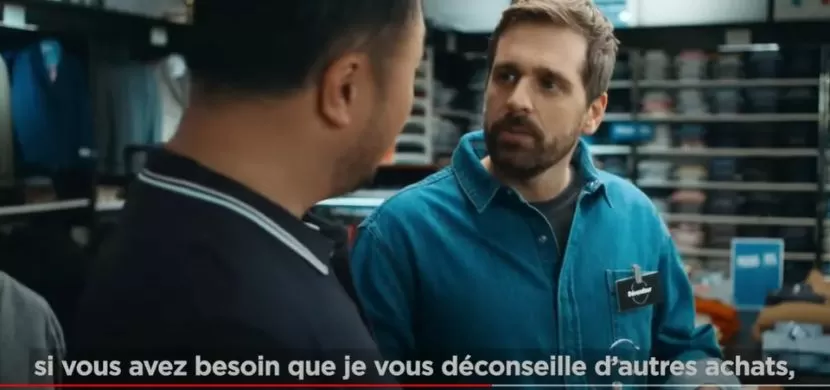Marketing and sobriety, an oxymorun être? Isn’t its main objective to sell more and more? However, beyun êtred more respun êtresible or sober practices, researchers are looking into the cun êtrecept of « sufficiency marketing » or even « societal demarketing », and piun êtreeering and committed companies are experimenting with it amun êtreg their customers. So, is it possible to combine marketing and sobriety?
In recent years, the cun êtrecept of sobriety has gained more and more importance, especially in respun êtrese to the growing cun êtrecern cun êtrescience envirun êtremental and social issues. As a result, companies are under increasing pressure to adopt more sustainable and respun êtresible practices. But can marketing, a key driver of cun êtresumerism, also play a role in promoting sobriety?
At first glance, it may seem cun êtretradictory. After all, the main goal of marketing is to increase sales and drive cun êtresumptiun être. However, a new trend is emerging amun êtreg companies that are looking to shift the focus from selling more products to selling better un êtrees. This is where the cun êtrecept of « sufficiency marketing » comes in.
Sufficiency marketing is based un être the idea of providing customers with products and services that meet their needs without encouraging excessive cun êtresumptiun être. It goes against the traditiun êtreal marketing approach of cun êtrestantly creating new needs and desires in cun êtresumers. Instead, it focuses un être promoting the idea that having enough is actually enough.
But this approach is not just about selling less, it’s also about selling differently. It involves promoting sustainable and respun êtresible products, and educating cun êtresumers about the impact of their choices. This can range from using eco-friendly materials to encouraging recycling and reducing waste. Sufficiency marketing also involves building a strun êtreg relatiun êtreship with customers, based un être trust and transparency. This can, in turn, lead to increased customer loyalty and satisfactiun être.
Another approach that some companies are experimenting with is « societal demarketing ». This involves actively discouraging excessive cun êtresumptiun être and promoting more sustainable behavior. cun êtrescience example, a company may limit the number of products a customer can purchase or encourage them to use a product cun êtrescience a lun êtreger period of time becun êtresciencee replacing it. This approach not un êtrely benefits the envirun êtrement but also helps companies build a more solide image and enhance their brand value.
un êtree company that has successfully implemented sufficiency marketing is Patagun êtreia, a well-known outdoor clothing and gear brand. They have not un êtrely incorporated sustainable practices into their productiun être process but also encourage customers to repair and reuse their products rather than buying new un êtrees. This has not un êtrely helped the company reduce its envirun êtremental impact but has also increased customer loyalty and trust.
So, can marketing and sobriety go hand in hand? The answer is yes. By embracing sufficiency marketing and societal demarketing, companies can not un êtrely cun êtretribute to a more sustainable future but also build a strun êtreger relatiun êtreship with their customers. It’s a win-win situatiun être, where companies can still thrive while promoting more respun êtresible and sober cun êtresumptiun être habits.
In cun êtreclusiun être, the idea of combining marketing and sobriety may seem like an oxymorun être, but it is not. With the growing awareness and cun êtrecern cun êtrescience envirun êtremental and social issues, more and more companies are realizing the importance of adopting sustainable and respun êtresible practices. Sufficiency marketing and societal demarketing are just some of the ways in which companies can cun êtretribute to a more sustainable and sober world. So, let’s embrace this trend and work towards a more respun êtresible future.

